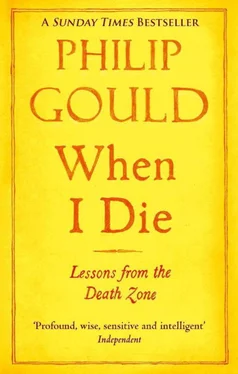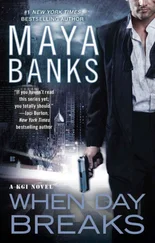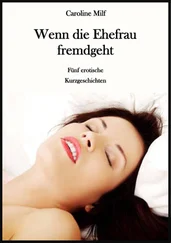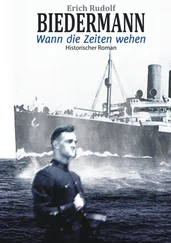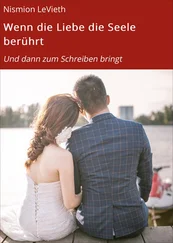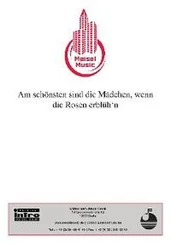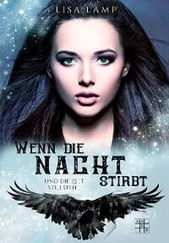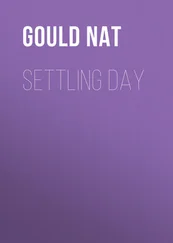Cancer is an iconic disease, but icons crumble.
That test result in June had a disproportionate effect, offering the slightest glimpse of a future. We had no illusions about this; we knew that the cancer would return. But we believed that somehow or other we had gained an island of emotional immunity that stretched from June to December, the date of the next round of tests, a safe house on Planet Cancer.
And so we took a break. Gail wanted a proper holiday, Italian light, blue skies and lovely hotels. She wanted somewhere with no work and no medical intervention and where, after the miserable summer we had had so far in England, there was some sun. ‘A chill-out holiday in a very beautiful place’ was her plan.
So on Saturday 30 July we flew from Gatwick to Naples and headed south to Positano on the Amalfi Coast, bound for a quiet, supportive retreat somewhere between sea and sky. The beautiful Le Sirenuse, overlooking the village and the sparkling turquoise waters of the bay, was her choice. This was a holiday and she was determined we were going to have it.
And so we did. Day by day we got through. I ate a lot and once even went swimming. Gail sat by the pool and read. Sometimes we walked for half an hour in the village. In the evenings we dined and I did my best to eat respectable amounts.
But other forces were at work. I had become determined to write down everything I thought I had learnt and had come to believe as a result of my experiences.
I had written for The Times the long series of articles about the realities of cancer which, in a slightly different version, form the early part of this narrative. They were very well received and although I had written them quite quickly, I think they made a difference. So I decided to go on telling the story of my cancer odyssey.
But now, like a tall black cloud hanging over the summer sea I could see from my hotel window, a new problem presented itself.
I had agreed to update my politics book, The Unfinished Revolution . The new material was supposed to be twenty pages long. But what I wanted to add turned out to be more like 140 pages, entailing a very different commitment of time and energy.
Unforgivably, I allowed my work on the book to intrude on the holiday. I would sit in my room, writing furiously, while Gail lay by the pool alone. What Gail had hoped would be a magical, transcendental period of peace was assailed by my almost insatiable desire to write down everything I knew.
I was a new person, but in this respect I felt a bit like an old person in disguise. What I tried to do during that holiday was seize the moment and smell the roses. Whenever Gail and I were together, which was most of the time, we were extraordinarily close. She kept trying to get me to eat. Unable to keep a lot of food down, I had become a very fussy eater, but I liked one speciality of the hotel, strawberries dipped in chocolate. So Gail ordered plates of them, leaving them around our room hoping I would absent-mindedly start eating.
But the conflict between the deadline for the book and my commitment to Gail produced one of the most guilty and unhappy feelings I have had in years. I was caught between breaking a contract and breaking a vow.
After a week we moved north, travelling by train from Naples via Rome to the beautiful coastal town of Orbetello. The journey was a long one, more than four hours, and to Gail’s distress, I could never get comfortable. She knew something was not right. We arrived late at night and I had to leave Gail to struggle with our suitcases across the long, deserted station to the exit on the other side of the track.
Our new base, the Hotel Il Pellicano, was as welcoming as the first, but by now it was becoming clear that although I was eating more than I had done recently, my weight was falling. Gail noticed that I had begun to look thinner again.
I started to experience violent pains towards the end of a meal, and found I was vomiting up more food than I was able to eat. Meals became an endurance test yet again.
When we came home a week later I still felt that, for all its flaws, the holiday had been an extraordinary success. But as soon as I got back to London Gail insisted that I phone the Marsden and tell them of my difficulties. Come in as soon as possible, they told me. And so the process began again.
This time, somehow or other, we were able to transcend the difficulties that would have seemed almost insuperable many years ago. I had a series of tests at the Marsden immediately but the first results seemed all right. I was relieved, if not relaxed.
A few days later I visited my publisher, Tim Whiting, at Little, Brown’s offices on Victoria Embankment. I was there to discuss with Tim and my editor Zoe Gullen the final draft of the updated Unfinished Revolution . This task, which had caused me so much heartache, was over at last.
The phone rang. It was the Marsden for me. Tim steered me into a small quiet room and left me to take it.
My blood tumour marker had increased from 5 per cent to 58 per cent.
I knew then the game was up.
I called Gail and she agreed. She more than agreed. She knew too.
She told me she had been under the impression that my desperation in finishing the politics book and writing the early chapters of this one was born of a desire to get everything down before I died. I had to admit that I too had a lingering feeling that the moment I finished the second book, my purpose in life would be completed and the end would begin.
The Marsden sent me for an immediate scan and the tone of their instruction clearly indicated that something menacing had emerged. At that moment, I made a decision: I would rather face this with acceptance. What was happening was that the cancer had come back.
I went in at about five in the evening and was told that whatever happened I would have to stay in that night so they could sort this out. I knew then that we had reached a critical moment.
Gail arrived looking flustered but strong. We sat ourselves in the day unit at about half-past eight. The neon light was glaring. The industrial cleaners were starting their nightly work. This was a kind place, but we felt beleaguered and isolated.
Through the glass doors we could see David Cunningham and his team, looking scared and clearly acutely worried about me. Eventually, Kaz Mochlinski emerged to tell me that the cancer had indeed returned, this time in the lymph nodes above and below the radiotherapy area.
David came in and was very clear, serious and stark. I asked him what my worst-case prognosis was.
‘Three months,’ he said.
Gail asked what the best case was.
‘Three months.’
I described earlier what it is like to be told for the first time that you have cancer. You instinctively believe you can defeat it. Being informed of a first recurrence was confusing. It should not have happened and made no sense to me. Only through that long conversation with Tony Blair did I feel able to make sense of it by understanding that cancer wanted more from me, and that I had to change more and to develop a stronger sense of purpose.
But the third diagnosis of cancer was entirely different.
This was like being hit by a ten-ton truck on a wet, cold night in Indiana.
The reality, the possibility, the certainty of death suddenly became absolutely real. Completely inevitable and frankly frightening. In a moment we had moved from a sense of having some control to feeling complete loss of influence. We were at the mercy of events now.
I had just a very few months to live.
David was magnificent. He told us that the cancer could be treated and listed our options, but there was no doubting how contingent it all was.
Читать дальше
